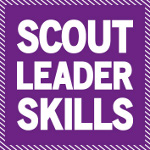Context
Response to the 2010–2013 federal activities contract of the Federation of Scouts
One of the priorities of the federal activities contract is the following: "Our project is a citizens' project, we have to make it known".
It is important to better recognise and appreciate the work performed by leaders and all the volunteers of our movement, since they are the ones who make scouting possible and help youths to grow up and transform society.
Extract of the 2010–2013 federal activities contract
Recognition of non-formal education and the skills acquired and developed thanks to it
 The European Union has been stressing the importance of education and training as driving forces for the economy since the early 2000s.
It has gradually started to recognise and value non-formal1 education and training and made a number of recommendations to its Member States.
These recommendations have been realised in several European countries and Belgium is no exception.
This context is undoubtedly favourable to the recognition of the skills acquired thanks to the experience of scout leaders and managers.
The European Union has been stressing the importance of education and training as driving forces for the economy since the early 2000s.
It has gradually started to recognise and value non-formal1 education and training and made a number of recommendations to its Member States.
These recommendations have been realised in several European countries and Belgium is no exception.
This context is undoubtedly favourable to the recognition of the skills acquired thanks to the experience of scout leaders and managers.
Search for soft skills in the world of work
Every two to three years, the King Baudouin Foundation identifies young (30–40 years old) business leaders who are chosen for their ideas, which bridge the corporate world and society as a whole. The Economic Circle arising from this selection chooses the topic it wishes to work on. The 2008 group brought up the following issue: "What levers does our society need to pull today to ensure companies can draw upon a richer pool of motivated employees in future generations?". This question led to a joint research project with the Solvay Business School and, eventually, to 25 recommendations. Their aims were to develop the core values and attitudes which will ensure the availability of motivated workers. These values are autonomy, innovation and responsibility. The entire survey is laid out in the book We need AIR2 (AIR for Autonomy, Innovation and Responsibility). One of these recommendations is fully in line with our project, since it calls for "promoting volunteer commitments and experiences and encouraging active participation in youth movements".
 Nevertheless, we have noticed that most of the current projects which aim to promote experience focus on volunteer mobility or the gateway to the academic world.
Few specific, far-reaching initiatives have been presented in the field of non-formal education which link it with adult life and the world of work.
Yet we see this type of initiative as essential to:
Nevertheless, we have noticed that most of the current projects which aim to promote experience focus on volunteer mobility or the gateway to the academic world.
Few specific, far-reaching initiatives have been presented in the field of non-formal education which link it with adult life and the world of work.
Yet we see this type of initiative as essential to:
- raising awareness about these skills among scout leaders;
- acknowledging the experience of scout volunteers; and
- the labour market's growing demand for soft skills.
Les Scouts, Scouts en Gidsen Vlaanderen and other Belgian youth movements
Belgium is home to 60,000 volunteer leaders active in the youth movement, including 10,000 at Les Scouts and a further 15,000 at the Scouts en Gidsen Vlaanderen. Each of them contributes approximately 600 hours of volunteer work every year:a total of 30 million hours per year in Belgium! Professor Jacques Defourny, Scouts, guides, Patros, en marche ou en marge ? symposium, 2006.
30 million hours which do not get the recognition they deserve from the world of work and civil society.
Professor Jacques Defourny, Scouts, guides, Patros, en marche ou en marge ? symposium, 2006.
Goals
- To ensure the world of work, parents and the general public recognise and value the skills acquired by the 25,000 scout volunteers. The skills and values acquired at Les Scouts and the Scouts en Gidsen Vlaanderen are a boon which will help youths in their adult lives and job searches.
- To raise awareness among scout leaders and local and federal managers about the skills acquired during their volunteer experiences. They will be able to understand them and use them to their advantage when looking for a job or in any other project during their adult lives.
- To say THANK YOU to all the volunteer leaders and managers who give their time, talent and heart for free, but not for nothing!

1. Definitions:
- formal education: that which is provided by a teaching or training institution and leads to a diploma. It is structured.
- non-formal education: that which is given outside a teaching or training institution and does not necessarily lead to a diploma. Nevertheless, it is both structured and deliberate.
- informal education: that which is provided outside a teaching or training institution, does not necessarily lead to a diploma and is not structured. It runs in parallel with other learning activities and can be unplanned or deliberate.
2. We need AIR, a study by the Economic Circle of the King Baudouin Foundation, Roularta Books, 2008.



